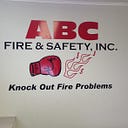Kitchen Fire Suppression Systems: What Restaurant Owners Need to Know
If you own or manage a restaurant, it’s imperative to take steps now so that fires can never happen. One way of doing this is by installing fire suppression systems in your kitchens and other areas where food preparation takes place; these will stop any flames before they spread and cause serious damage.
When it comes time for your annual inspection of the kitchen fire suppression system, make sure you check both equipment and maintenance. To maintain functionality throughout all areas in which these systems are installed (including Mr. Fire Alarm himself!), there need to be no issues with anything from sensors on alarm wires up through pipes connected underground level — so don’t skip this important step.
For a dry and healthy home, it’s important to have the right emergency preparedness supplies on hand. The best way of ensuring that your family will be safe during any natural disaster? Having an emergency kit.
Inspections are a necessary part of running a restaurant, but they’re not always pleasant. This article will tell you what to expect during the process and how it can benefit both owners as well as employees who work at your place! You’ll also want this knowledge if there’s any chance that customers might find their way into one or two restaurants while visiting family nearby- because no matter where people come from around town…we have fire hazards too.
When you’re cooking and preparing food, it’s vital to have a fire suppression system that works. NFPA codes require kitchens to be inspected at least semi-annually for purposes of maintaining peak performance in operating condition as well as ensuring genuine replacement parts are available when needed by having access to the latest manuals or knowledge from certified professionals who can also provide advice on how best to use your equipment.
It’s crucial to find a dependable company when you need fire protection for your building, which is why we make sure our systems are well-tested and reliable. We conduct extensive inspections on all parts of the system so no one gets hurt in case there are flames everywhere.
Appliances, plenum nozzles, and ducts: a comprehensive look at the state-of-the-art in heating ventilation cooling systems (HVAC).
The link lines are key components of an HVC system’s operation. They allow for heat or cold airflow into your home depending on what you need it to do; this will then send electricity through wires which powers devices like fridge motors etc., before returning them out again as warm air! Ductwork connects rooms by exhausting moisture.
Fire extinguishers are important safety equipment that must be regularly inspected and tested. The fire inspector will use this information to ensure the best possible outcome in an emergency, which means you should too.
— 1. Every month, you should conduct an in-house inspection.
While it is required that a trained and certified technician inspect your system every six months, you should perform an ambient visual inspection each month
When you’re checking that all of your nozzles are pointed in the right direction and nothing is blocking them, make sure to check for grease or dirt buildup on top. You should also try turning off any system gauges by pushing them down hard enough so they’ll go past their ‘inoperable’ point (usually green).
Lastly, be sure to check for any tamper indicator pins. These will let you know if someone has tried cutting them out so they could turn off fire suppression equipment.
